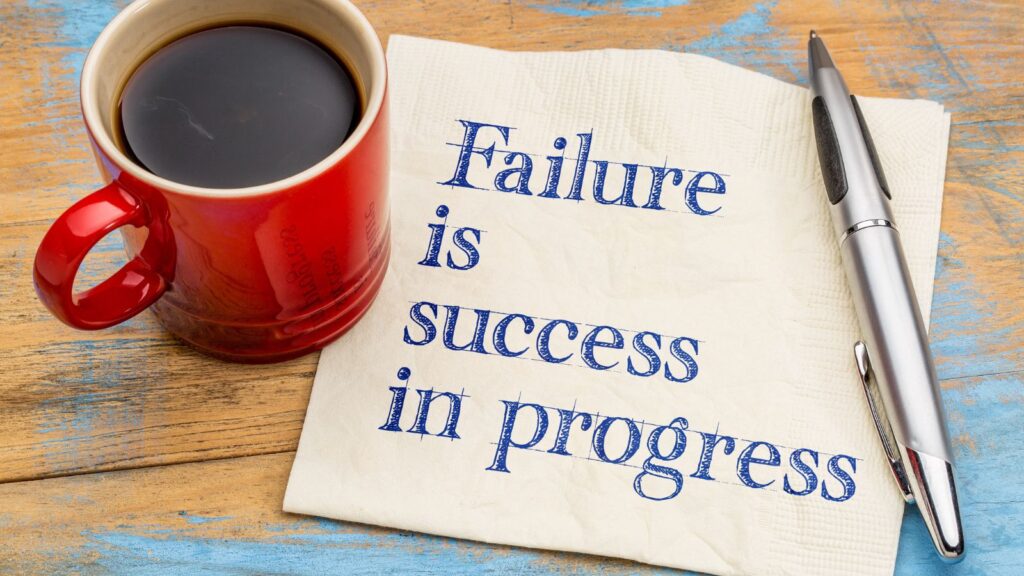Outline: Brief History on the International Day for Failure | Failure From Three Great Minds | Why We Should Embrace Failures in Business – Actions – Failures, Solutions, and Successes – Tradition – Emotions – Prototypes | Final Thoughts
Today is the international day for failure—a day where we celebrate our mistakes, shortcomings, and defeats. We also get to embrace our failures and learn from them on this day.
For too long, failure has been seen as something negative, something to be ashamed of. But it’s time to change that. It’s time to see failure for what it really is: an opportunity to learn and grow.
A Brief History Of the International Day for Failure
Students of Aalto University in Finland created the International Day for Failure initiative to reduce the phobia of risks and failure. They first celebrated the day in 2010, and their idea was to motivate small business owners scared of starting afresh after a fail.
This celebration inspires individuals to do the hard things, try new things, and support and help each other to succeed. It also creates opportunities for successful people to share their failures and successes.
With a better understanding of why this initiative exists, we can now explore ways in which we can celebrate today.
Insights About Failure From Three Great Minds
So, let’s take a closer look at failure. What is it really? And why is making mistakes a crucial part of your success?
To help us answer these questions, we’ve gathered some of the most insightful quotes about failure from 3 of the world’s brightest minds. So, let’s take a look at what they have to say.
1. Thomas A. Edison
“I have not failed. I’ve just found 10,000 ways that won’t work.”
Thomas A. Edison.
There is a lot of truth to this quote from Edison. When we fail, we often feel like we are the only ones who have ever made that mistake. But the reality is that everyone has failed at something in their life.
The difference between successful people and unsuccessful people is that successful people have learned from their failures. They have used their failures as a springboard to success.
So, don’t beat yourself up if you’ve failed at something. Instead, use it as an opportunity to learn and grow. Once you’ve learned the lesson, you can let it go.
This quote is a reminder that we should never give up. And if we fail, we should try again. Because when we find a way that works, it will be more fulfilling because we fought for it.
2. J.K. Rowling
“It is impossible to live without failing at something unless you live so cautiously that you might as well not have lived at all – in which case, you fail by default.”
J.K. Rowling.
We often view failure as something to be avoided at all costs. But the reality is that we cannot live our lives without failing at something. If we try to flee from failure, we will also avoid living.
This quote reminds us not to be afraid to take risks. We should not be scared to put ourselves out there. We should not be afraid to try new things. Because if we don’t, we will never know what we are capable of.
Never let your failures define you – let them teach you. You’re not your mistakes and will always be much more than them. So, don’t let your failures hold you back. Use them as motivation to keep moving forward.
3. Herbert Bayard Swope
“I can’t give you a sure-fire formula for success, but I can give you a formula for failure: try to please everybody all the time.”
Herbert Bayard Swope.
When we try to please everyone, we often end up pleasing no one. We end up stretching ourselves too thin and not doing any one thing well.
It’s important to be aware of our priorities and focus on them. We should also be aware of our capabilities and limitations. We can’t do everything, and that’s okay. It’s better to focus on doing a few things very well than to try to do everything and end up doing nothing well.
This quote also reminds us that we should not be afraid to stand up for what we believe in or to be different. Trying to please everyone will often make us compromise our values and beliefs. But if we are true to ourselves, we will be happier and more successful in the long run.
How to Promote the Culture of Embracing Failures in Your Business

One of the ways to execute career planning for your employees is to promote the culture of embracing failures. We should deal with failures with a growth, innovative, positive, and creative mindset.
Pro Tip: This doesn’t refer to mistakes made due to inattention, procrastination, disorganization, meanness, and avoidable situations.
Here are five ways you can promote the culture of embracing failures in your business:
1. Embrace the Culture With Your Actions
The practice of embracing failures and trying out new things begins with you. How do you handle failure? Do you get moody or look forward to learning from your mistakes?
Your employees usually look up to you and how you handle your successes and failures. If you don’t handle failures well, they may be scared to try new things, bring up new ideas, or take up new projects.
2. Talk About Your Failures, Solutions, and Success
Today is perfect for sharing your experiences and failures in your business journey. It is an opportunity to encourage your team not to give up on their journey. Sharing this helps them work towards their career path and the career plan you have prepared to help them grow.
Your business won’t grow without individual growth within your team. Adding value to the lives of your team is an excellent way to build a strong support system that encourages creativity and innovation.
Read: Celebrate Your Accomplishments and Focus on Positivity
3. Start the Tradition of Solution Bringing and Transparency
To improve the skills of critical thinking and problem-solving in your organization, take a step back during meetings. Here’s how it works, allowing your employees to participate in decision-making and solving existing problems enables them to be proactive even in your absence.
You can do this by:
- Practicing good listening skills in meetings
- Asking questions related to the project
- Discuss the upside and downside of a solution with them
4. Eliminate Negative Emotions During Corrections
This is the challenging part. You may want to get angry or emotional about a failed project. The truth is, your employee is already feeling negative emotions about it.
Here’s how to find solutions positively:
- Start by not blaming anyone. Also, discourage your team from pointing fingers at each other.
- Have a meeting to discuss the problems and the way forward
- Encourage your team to work on the solutions together.
- Strategize and try again
5. Create Rooms for Using Prototypes
While trying out new things is a great way to move forward, consider adopting new ideas as mini-projects first. Creating prototypes of ideas or executing them as mini-projects reduces the risks of losing. However, it promotes a culture of building and creativity.
You can use this as an opportunity to build your team’s skills and promote growth in their lives and the business as a whole.
Final Thoughts
Failure is not something we should be afraid of. It’s an opportunity to learn and grow. So, embrace your failures and learn from them.
If you look at successful people, you will notice that every single one had hundreds, if not even thousands of failures before they had their big break.
So, if you’re feeling down about your failures, just remember that even the most successful people have been in your shoes. And, if they can overcome their failures, so can you. And if you can, your team will as well.
Happy International Day for Failure!










